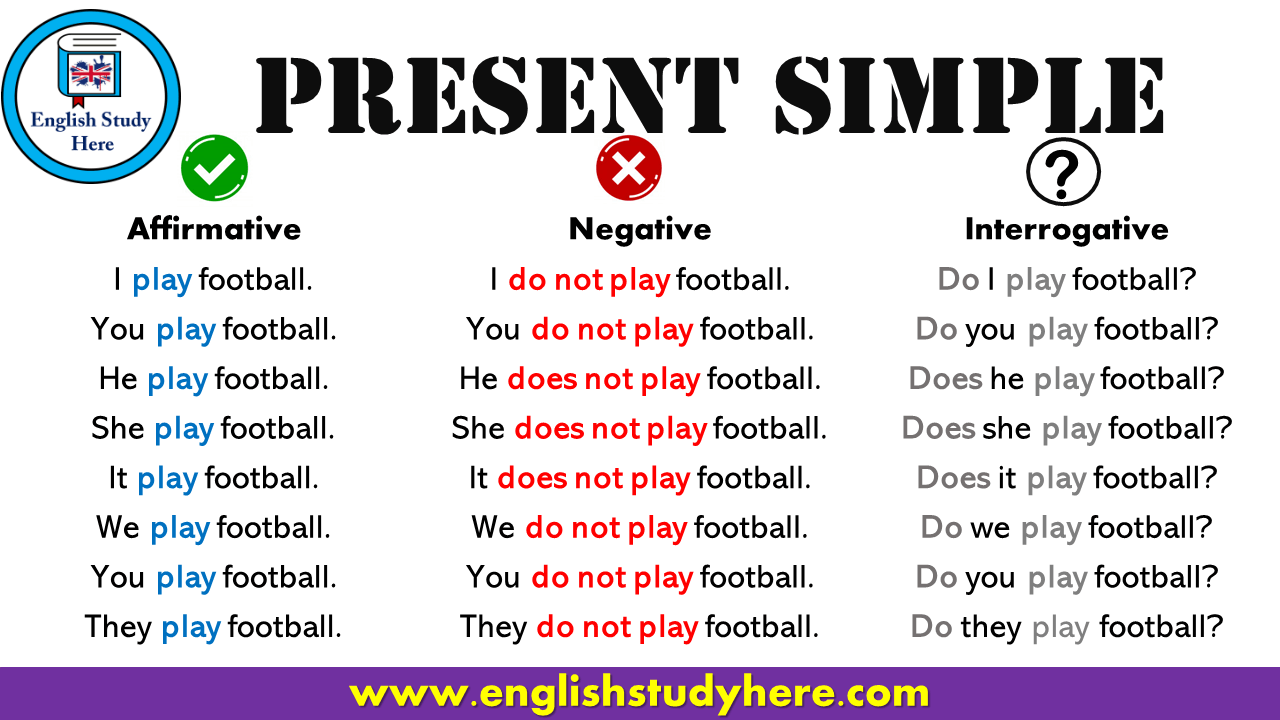
Present Simple Tense Review in English English Study Here
The simple present tense is an English verb tense used to describe facts and habits, to describe scheduled events in the future, and to tell stories. Here are two easy examples of each usage: (1) Simple present tense to describe facts and habits. Alan walks the dog every morning. He plays chess.
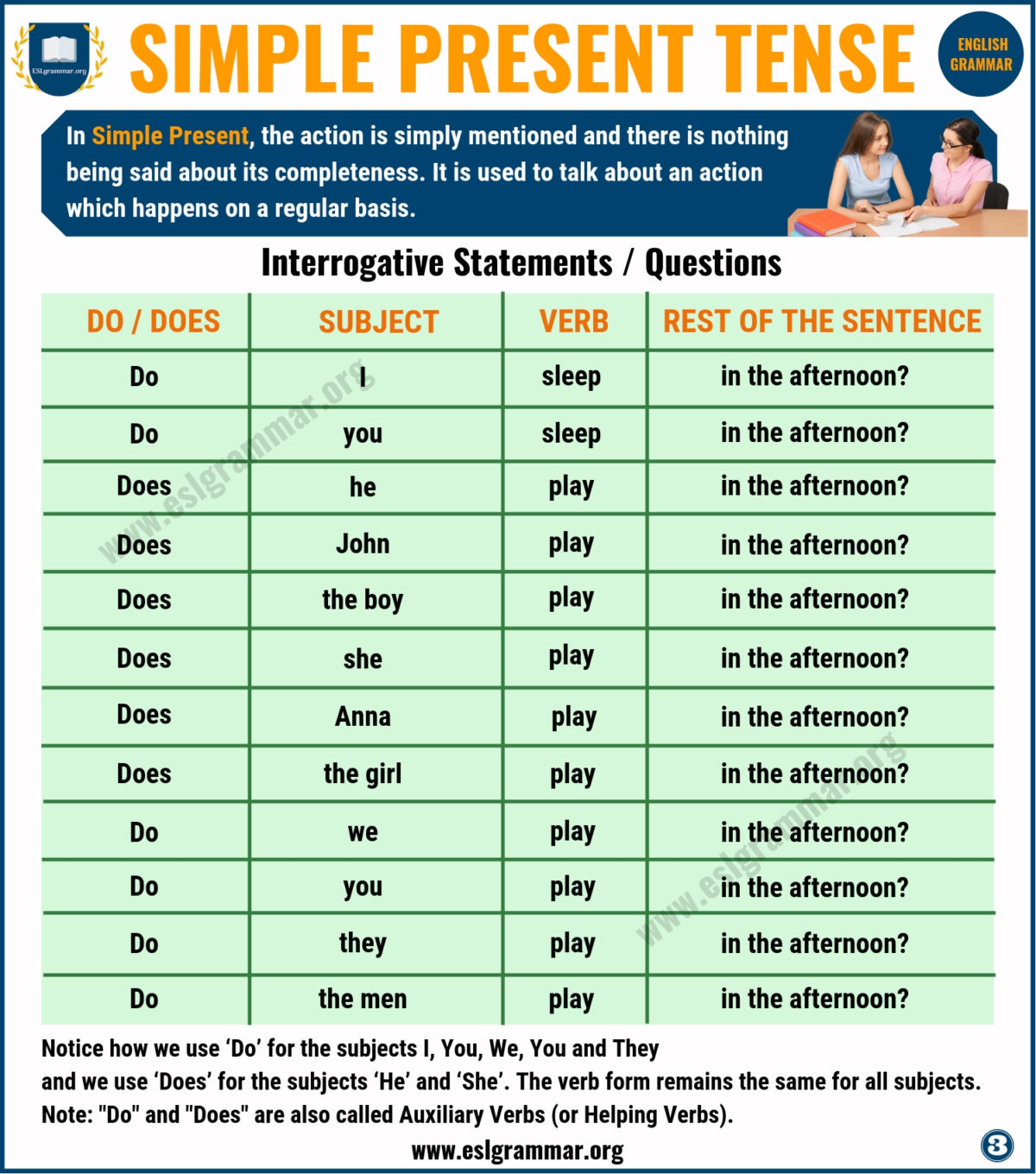
Simple Present Tense Definition and Useful Examples ESL Grammar
play It is conjugated like: work infinitive: present participle: past participle: (to) play playing played definition in Spanish in French in Italian Indicative Perfect tenses Continuous (progressive) and emphatic tenses Compound continuous (progressive) tenses Conditional Imperative Subjunctive

THIRD (3rd) GRADE
The simple tense is the "simplest" way to express past, present, and future events. Present regular verbs are conjugated by adding "-s" to third person singular. Past regular verbs are conjugated by adding "-ed" to all verb forms. Future verbs are conjugated by adding "will" before the first person singular form of the verb.

SIMPLE PRESENT TENSE This post includes detailed expressions about
5. Tic Tac Toe. Not only does this classic game help students to revise the present simple, it also contributes to their understanding of predictability, problem solving and turn taking. How to play: Create some grids with words needed to make present simple statements in affirmative and negative, as well as questions:

Simple Present Tense Simple present tense, English language learning
The "-ing" form of a verb is also known as the present participle. The present participle has a few uses:. It's used in continuous tenses, such as the present continuous (e.g., "he is jumping for joy").; It can be used as an adjective to modify a noun (e.g., "the jumping man").; It's used in participial phrases—phrases that start with a participle and modify a noun or pronoun.
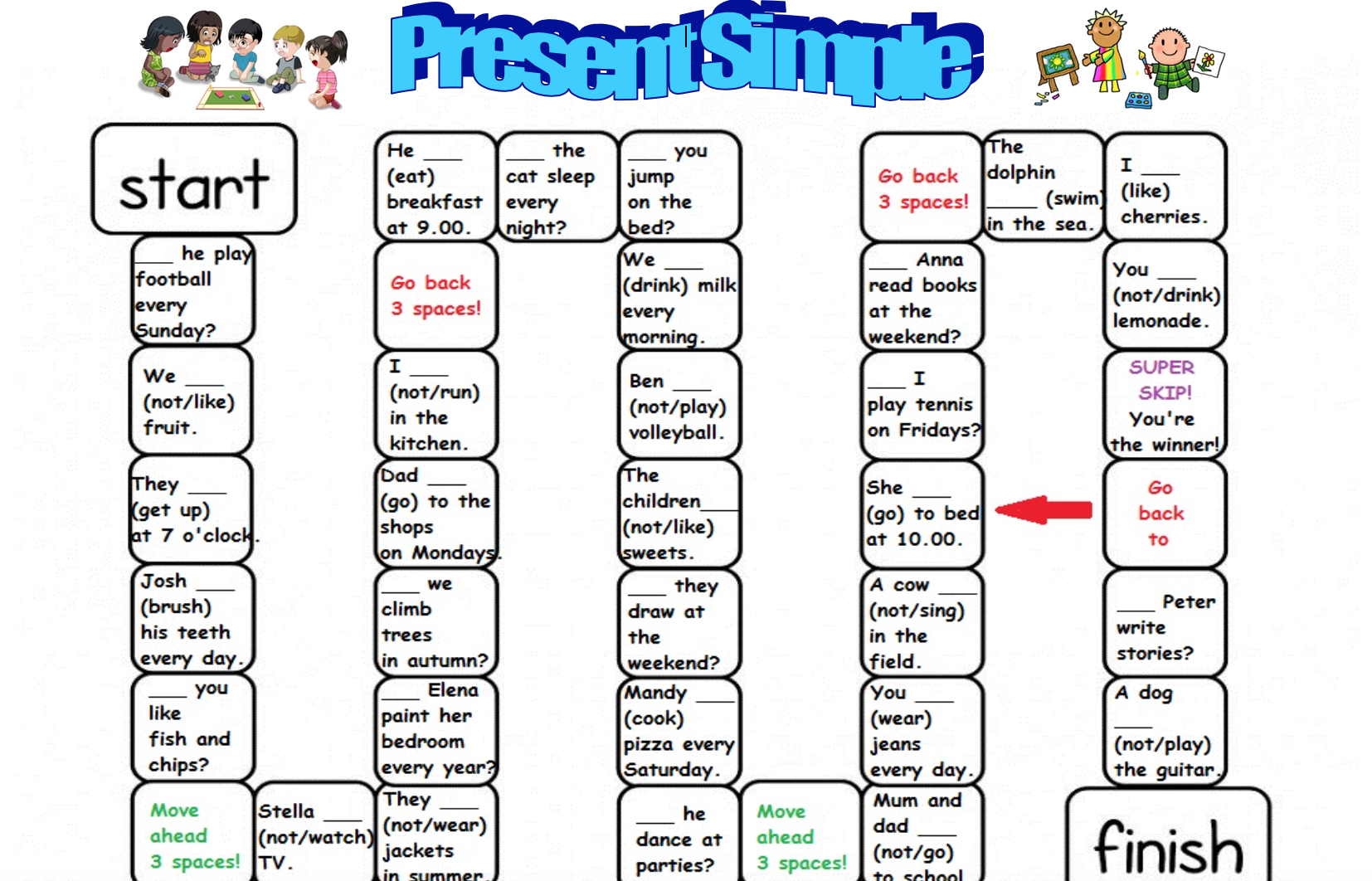
Present Simple Board Game
Model : obey Auxiliary : have, be Other forms: play oneself / not play Contractions Advertising Indicative Present I play you play he/she/it plays we play you play they play Preterite I played you played he/she/it played we played you played they played Present continuous I am playing you are playing he/she/it is playing we are playing
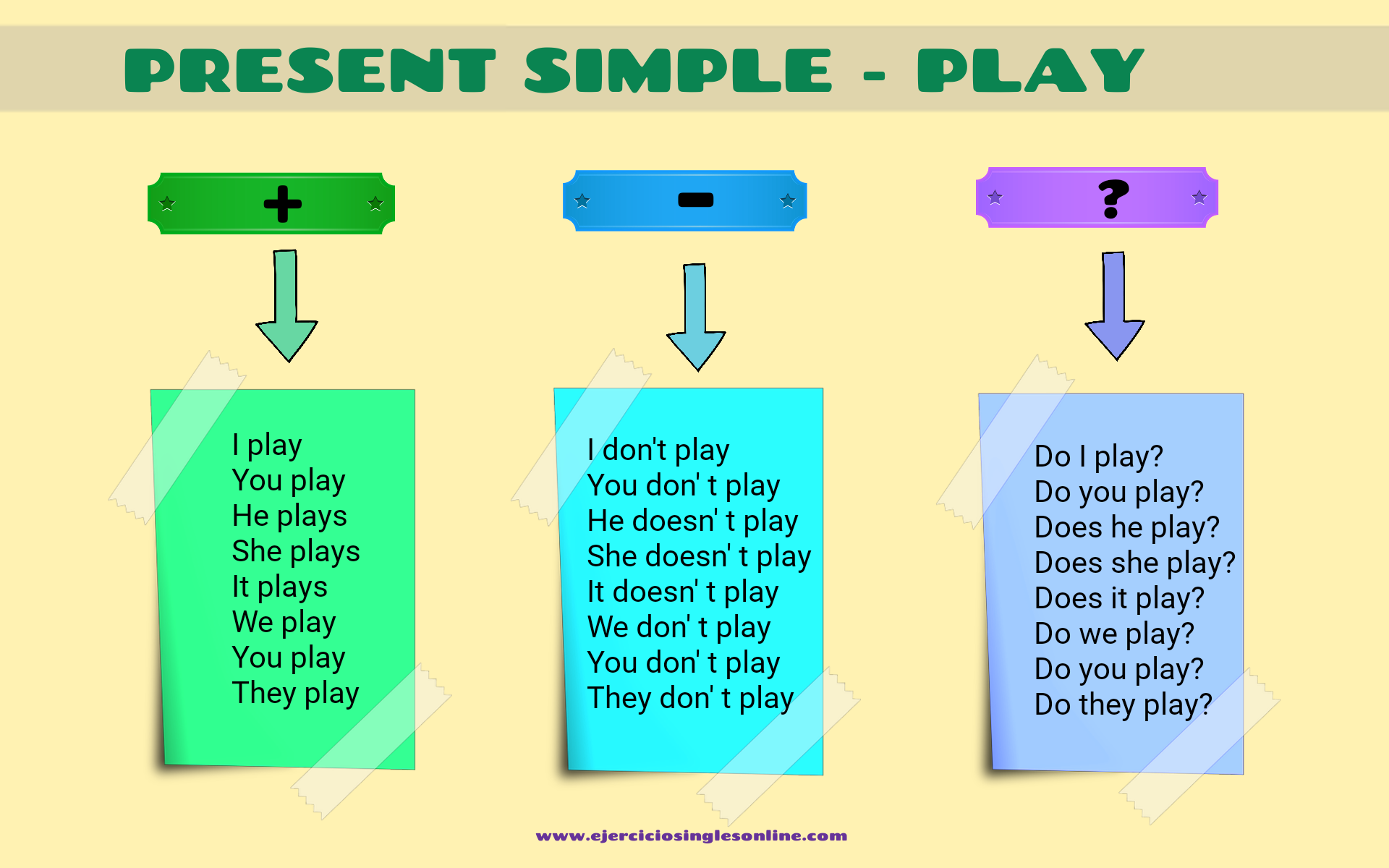
Presente simple verbo PLAY en inglés Ejercicios inglés online
English Grammar Verbs Present tense Present simple Present simple Level: beginner The present tense is the base form of the verb: I work in London. But with the third person singular ( she / he / it ), we add an -s: She works in London. Present simple questions Look at these questions: Do you play the piano? Where do you live?

20 Examples of Simple Present Tense Sentences »
Simple present tense (present simple tense) is a verb tense that describes the events and situations that do not change over time. We use simple present tense for the actions that happen regualarly, and that is why we use some frequency adverbs to express these repititive actions. " Do " and " does " are the auxiliary verbs of present simple tense.
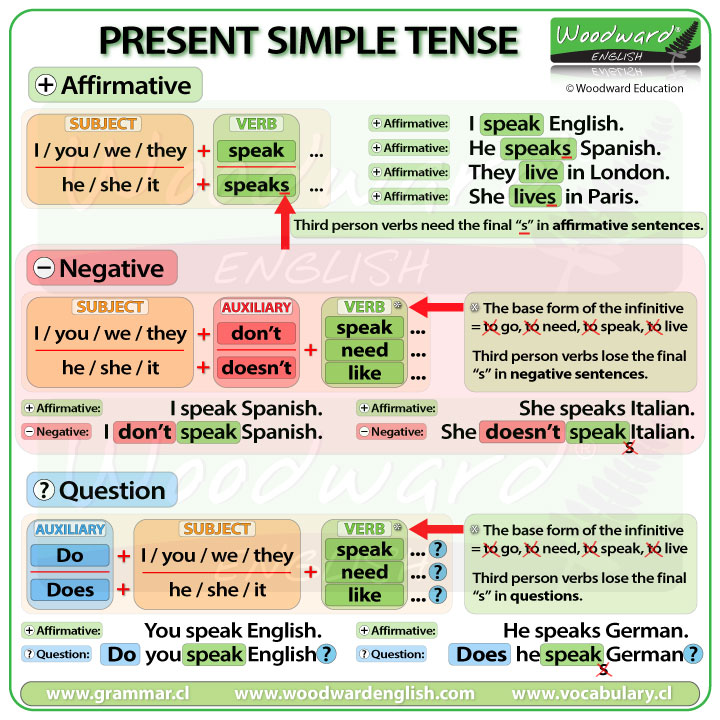
Present Simple Tense in English Woodward English
The Simple Present Tense is one of the most basic tenses in the English language. It is used to describe actions that are happening right now, habitual actions, general truths, and future events. This tense is also known as the Present Simple or Present Indefinite. To form the Simple Present Tense, we use the base form of the verb (also known.
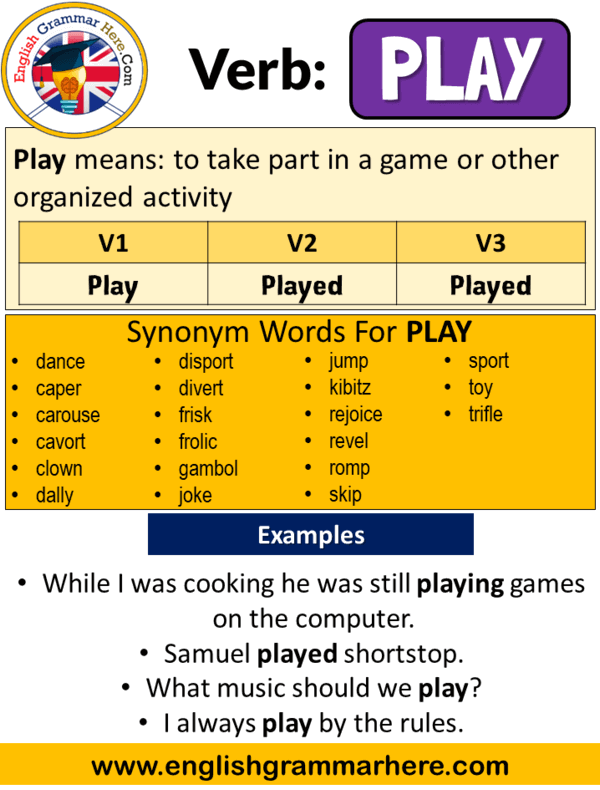
Play Past Simple, Simple Past Tense of Play Past Participle, V1 V2 V3
The Present Simple tense is the most basic tense in English and uses the base form of the verb (except for the verb BE). The only change from the base is the addition of s for third person singular.. Do you play football? Present Simple for now. For stative verbs, we can use the Present Simple to talk about now. Stative verbs do not describe.
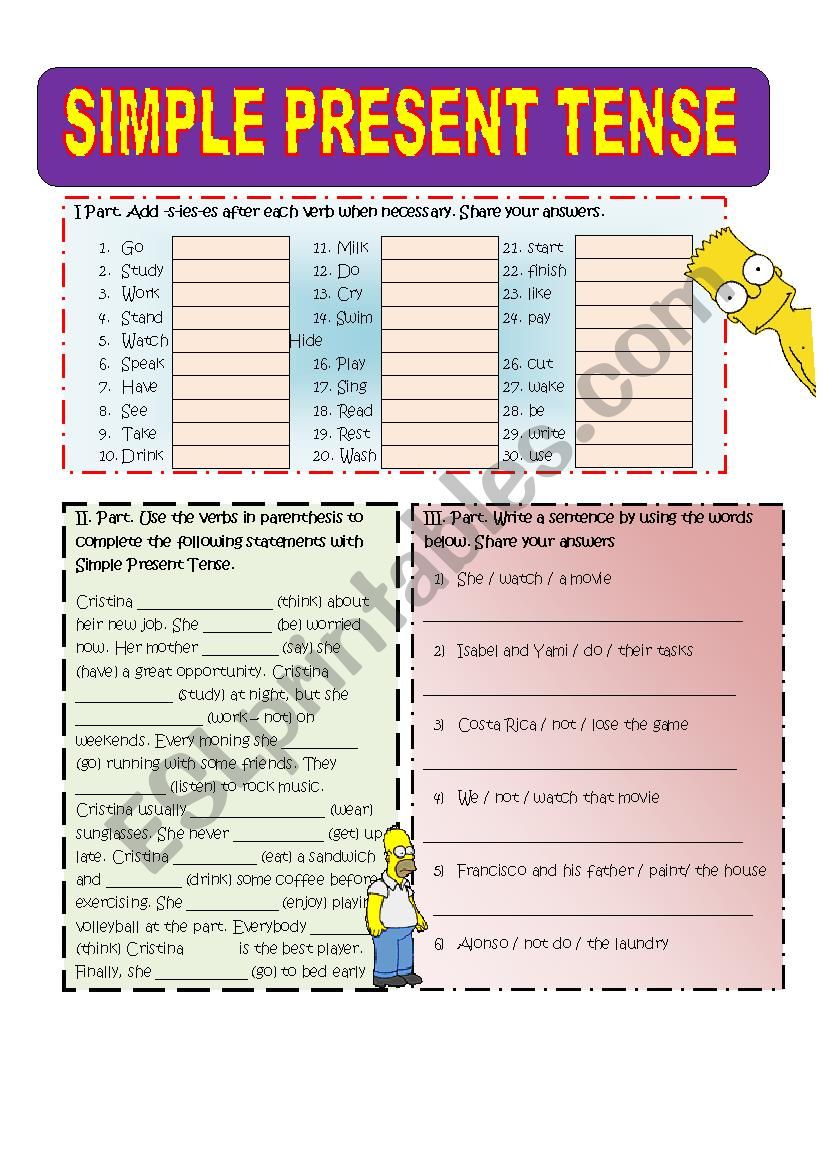
What Is Simple Present Tense Simple Present Tense Materials For
Grammarly Updated on April 11, 2023 Grammar The simple present is a verb tense with two main uses. We use the simple present tense when an action is happening right now, or when it happens regularly (or unceasingly, which is why it's sometimes called present indefinite).

Present Tense Of Play astonishingceiyrs
About this game. This is a game for practicing present simple verbs in English. You look at the images and then click on the words to make phrases and sentences. The target language is the vocab and grammar for present simple tense. The vocab comes from the range of verbs used in the game, while the grammar is practiced through the correct use.

Download Teaching Simple Present Tense Games greekletitbit
1. To express fact or truth: Simple Present Tense is used to state facts or undoubted truths. The below examples are either facts or true statements…. "Oil floats on water.". "The earth orbits around the sun.". "The sun sets in the west.". 2. To express habit, hobby, work, or routine.
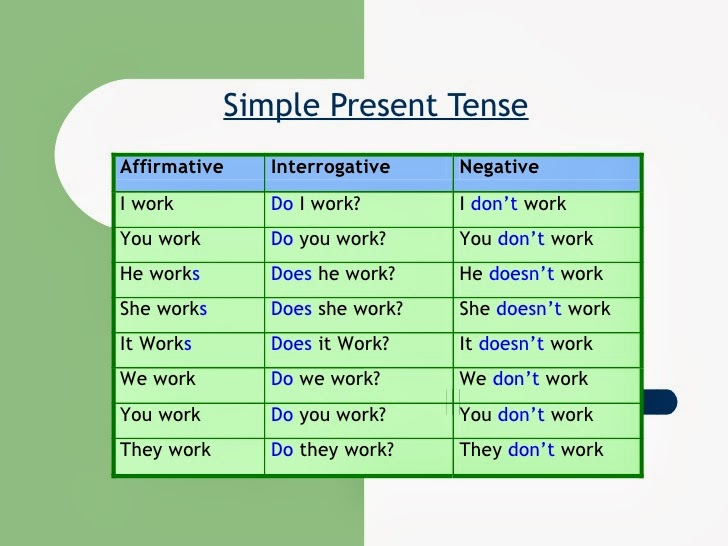
Simple Present Tense Help For people(මිනිසුන්ට උදව්කිරිම)
Conjugation English verb to play in several modes, tenses, voices, numbers, persons : indicative mode, subjunctive, imperative mood, conditional, participle form, gerund, present, past, future perfect, progressive.. Present perfect simple. I have played you have played he has played we have played you have played they have played. Present.
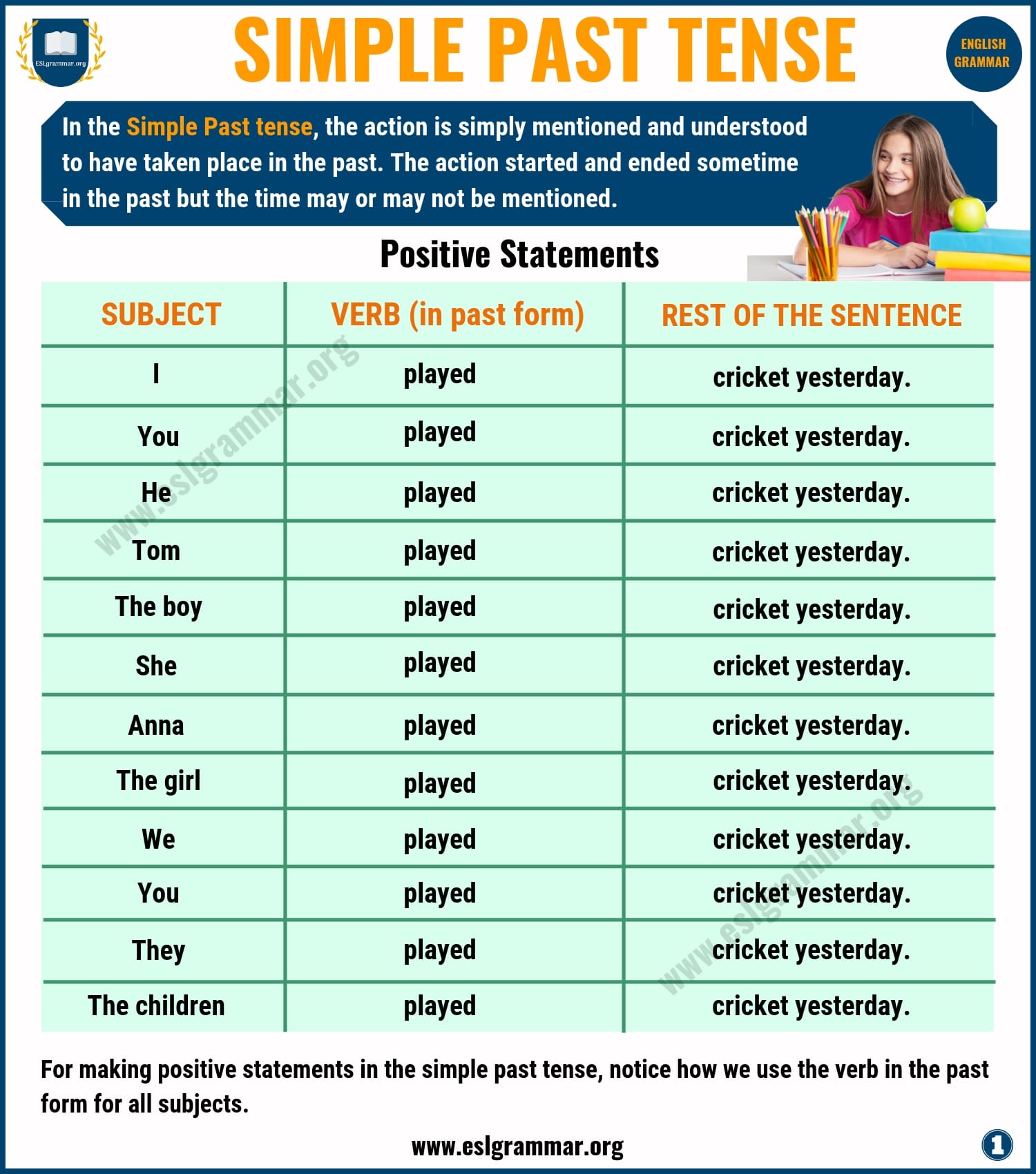
Verb use in past simple
Present Simple Tense We use the Present Simple Tense to talk about regular activities, habits, or facts. <---x---x--- now ---x---x---> I play tennis on Saturday. I played tennis on Saturday in the past. I will play tennis on Saturday in the future. I wake up at 7:00am. I wake up a 7:00am everyday. This is a habit. It rains in June. This is a fact.

English Blog Cycle 3 Explicación Presente Simple (Copiar en el cuaderno)
How to form the Present Simple. Use the same verb ending as the infinitive form for I, you, we and they. For he, she or it, add s or es or ies. I play tennis You play tennis He / She plays tennis We play tennis They play tennis. Add es for verbs that end -ss, -sh, -ch, -tch: I kiss / He kisses I wish / She wishes I match / It matches I march.